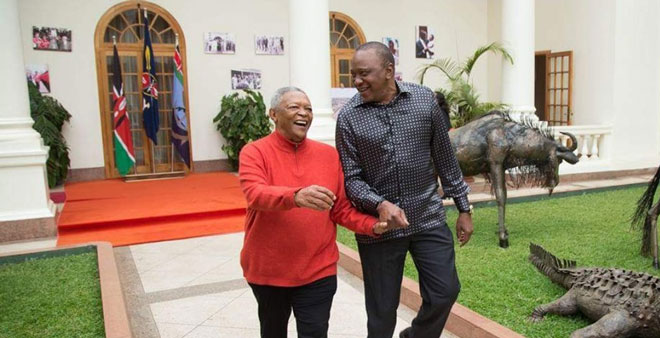
On the ironically titled 1966 live “Americanisation of Ooga Booga”, he demonstrated the creative possibilities of “township bop”. Masekela did this by mashing up repertoire and playing styles from the South Africa he had left and the America he had landed in.
But he was also looking in other directions: in collaborations with other African musicians; towards fusion (with The Crusaders), rock (with The Byrds) and even pop at the Monterey Pop, festival.
That list captures only a fraction of his projects in the 1960s. Some bore instant fruit: his 1968 single, “Grazin’ In the Grass”, topped the Billboard Hot 100 list and sold four million copies; the previous year’s “Up Up and Away” became an instant standard.
In 1971, he teamed up with Gwangwa and Caiphus Semenya for another pan-African vision: The Union of South Africa. In 1972 he explored a stronger jazz orientation on “Home is Where The Music Is” with, among others, sax player Dudu Pukwana, bassist Eddie Gomez, keyboardist Larry Willis and Semenya.
Sixties counterculture
But as the title of “Grazin’ In the Grass” suggests, Masekela was also bewitched by other aspects of Sixties counterculture. He dated his addiction back to the alcohol-focused social climate of his early playing years in South Africa, but by the early Seventies he admitted: “I had destroyed my life with drugs and alcohol and could not get a gig or a band together. No recording company was interested in me…”
That depression inspired the song that achieved genuinely iconic status back home in South Africa: the 1974 reflection on migrant labour, “Stimela/Coal Train”.
Foreign critics have handed that status to other Masekela songs, such as “Soweto Blues”, “Gold” or the much later “Bring Him Back Home”. Yet powerful though those are, it is Stimela, with its slow-burning steam-piston rhythm that captured the hearts of South Africans in struggle back home, and still does today. And of course the lyrics: ”There’s a train that comes from Namibia and Malawi /there’s a train that comes from Zambia and Zimbabwe/ from Angola and Mozambique…
Masekela said: ”For me songs come like a tidal wave … At this low point, for some reason, the tidal wave that whooshed in on me came all the way from the other side of the Atlantic: from Africa; from home”.
Shortly afterwards, Masekela headed off to Ghana, hooked up with Hedzoleh Soundz, and was soon back in the charts. “Stimela” received its first outing on the album “I Am Not Afraid”, with West African and American co-players including pianist Joe Sample.
By the mid ‘80s, the hornman was back in southern Africa, recording “Technobush” at the mobile Shifty Studio in Botswana, and performing for the Medu Arts Ensemble with a Botswanan/South African band, Kalahari. His music shifted again: roots mbaqanga came strongly to the fore to speak simply and directly to people now openly battling the apartheid regime just across the border.
 The Independent Uganda: You get the Truth we Pay the Price
The Independent Uganda: You get the Truth we Pay the Price





